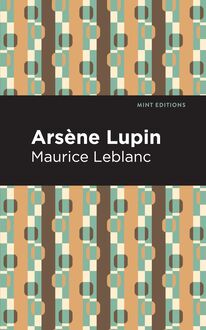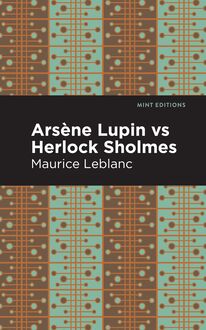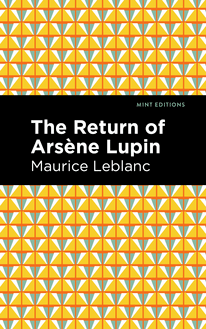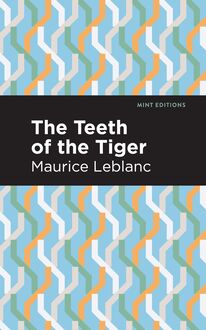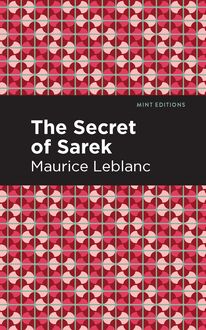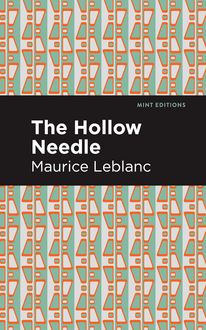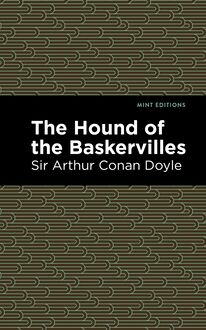-
 Univers
Univers
-
 Ebooks
Ebooks
-
 Livres audio
Livres audio
-
 Presse
Presse
-
 Podcasts
Podcasts
-
 BD
BD
-
 Documents
Documents
-
- Cours
- Révisions
- Ressources pédagogiques
- Sciences de l’éducation
- Manuels scolaires
- Langues
- Travaux de classe
- Annales de BEP
- Etudes supérieures
- Maternelle et primaire
- Fiches de lecture
- Orientation scolaire
- Méthodologie
- Corrigés de devoir
- Annales d’examens et concours
- Annales du bac
- Annales du brevet
- Rapports de stage
La lecture à portée de main
Vous pourrez modifier la taille du texte de cet ouvrage
Découvre YouScribe en t'inscrivant gratuitement
Je m'inscrisDécouvre YouScribe en t'inscrivant gratuitement
Je m'inscrisEn savoir plus
Vous pourrez modifier la taille du texte de cet ouvrage
En savoir plus

Description
A man of means, Horne Fisher is a well-connected detective who’s social and political influence gives him special insight into the underbelly of Britain’s elite. G.K. Chesterton uses the protagonist to shine a light on the true nature on the ruling class. In The Man Who Knew Too Much, Horne Fisher leads a collection of short stories that constantly test his morals. He is frequently joined by his partner, a political journalist, named Harold March. Together, they work on various criminal cases often involving murder. Some of the most notable stories include "The Face in the Target," "The Vanishing Prince," "The Soul of the Schoolboy" and "The Bottomless Well." It is a compelling series of suspenseful tales with intriguing characters. The Man Who Knew Too Much was initially published as a serial in Harper's Monthly Magazine, and then as a full collection in 1922. It was also famously adapted for film by Alfred Hitchcock in 1934 and 1956, respectively. With an eye-catching new cover, and professionally typeset manuscript, this edition of The Man Who Knew Too Much is both modern and readable.
Sujets
Informations
| Publié par | Mint Editions |
| Date de parution | 14 mai 2021 |
| Nombre de lectures | 0 |
| EAN13 | 9781513285542 |
| Langue | English |
| Poids de l'ouvrage | 1 Mo |
Informations légales : prix de location à la page 0,0450€. Cette information est donnée uniquement à titre indicatif conformément à la législation en vigueur.
Extrait
The Man Who Knew Too Much
G.K. Chesterton
The Man Who Knew Too Much was first published in 1922.
This edition published by Mint Editions 2021.
ISBN 9781513280523 | E-ISBN 9781513285542
Published by Mint Editions®
minteditionbooks.com
Publishing Director: Jennifer Newens
Design & Production: Rachel Lopez Metzger
Project Manager: Micaela Clark
Typesetting: Westchester Publishing Services
C ONTENTS
I. T HE F ACE IN THE T ARGET
II. T HE V ANISHING P RINCE
III. T HE S OUL OF THE S CHOOLBOY
IV. T HE B OTTOMLESS W ELL
V. T HE F AD OF THE F ISHERMAN
VI. T HE H OLE IN THE W ALL
VII. T HE T EMPLE OF S ILENCE
VIII. T HE V ENGEANCE OF THE S TATUE
I
T HE F ACE IN THE T ARGET
Harold March, the rising reviewer and social critic, was walking vigorously across a great tableland of moors and commons, the horizon of which was fringed with the far-off woods of the famous estate of Torwood Park. He was a good-looking young man in tweeds, with very pale curly hair and pale clear eyes. Walking in wind and sun in the very landscape of liberty, he was still young enough to remember his politics and not merely try to forget them. For his errand at Torwood Park was a political one; it was the place of appointment named by no less a person than the Chancellor of the Exchequer, Sir Howard Horne, then introducing his so-called Socialist budget, and prepared to expound it in an interview with so promising a penman. Harold March was the sort of man who knows everything about politics, and nothing about politicians. He also knew a great deal about art, letters, philosophy, and general culture; about almost everything, indeed, except the world he was living in.
Abruptly, in the middle of those sunny and windy flats, he came upon a sort of cleft almost narrow enough to be called a crack in the land. It was just large enough to be the water-course for a small stream which vanished at intervals under green tunnels of undergrowth, as if in a dwarfish forest. Indeed, he had an odd feeling as if he were a giant looking over the valley of the pygmies. When he dropped into the hollow, however, the impression was lost; the rocky banks, though hardly above the height of a cottage, hung over and had the profile of a precipice. As he began to wander down the course of the stream, in idle but romantic curiosity, and saw the water shining in short strips between the great gray boulders and bushes as soft as great green mosses, he fell into quite an opposite vein of fantasy. It was rather as if the earth had opened and swallowed him into a sort of underworld of dreams. And when he became conscious of a human figure dark against the silver stream, sitting on a large boulder and looking rather like a large bird, it was perhaps with some of the premonitions proper to a man who meets the strangest friendship of his life.
The man was apparently fishing; or at least was fixed in a fisherman’s attitude with more than a fisherman’s immobility. March was able to examine the man almost as if he had been a statue for some minutes before the statue spoke. He was a tall, fair man, cadaverous, and a little lackadaisical, with heavy eyelids and a highbridged nose. When his face was shaded with his wide white hat, his light mustache and lithe figure gave him a look of youth. But the Panama lay on the moss beside him; and the spectator could see that his brow was prematurely bald; and this, combined with a certain hollowness about the eyes, had an air of headwork and even headache. But the most curious thing about him, realized after a short scrutiny, was that, though he looked like a fisherman, he was not fishing.
He was holding, instead of a rod, something that might have been a landing-net which some fishermen use, but which was much more like the ordinary toy net which children carry, and which they generally use indifferently for shrimps or butterflies. He was dipping this into the water at intervals, gravely regarding its harvest of weed or mud, and emptying it out again.
“No, I haven’t caught anything,” he remarked, calmly, as if answering an unspoken query. “When I do I have to throw it back again; especially the big fish. But some of the little beasts interest me when I get ’em.”
“A scientific interest, I suppose?” observed March.
“Of a rather amateurish sort, I fear,” answered the strange fisherman. “I have a sort of hobby about what they call ‘phenomena of phosphorescence.’ But it would be rather awkward to go about in society carrying stinking fish.”
“I suppose it would,” said March, with a smile.
“Rather odd to enter a drawing-room carrying a large luminous cod,” continued the stranger, in his listless way. “How quaint it would be if one could carry it about like a lantern, or have little sprats for candles. Some of the seabeasts would really be very pretty like lampshades; the blue sea-snail that glitters all over like starlight; and some of the red starfish really shine like red stars. But, naturally, I’m not looking for them here.”
March thought of asking him what he was looking for; but, feeling unequal to a technical discussion at least as deep as the deep-sea fishes, he returned to more ordinary topics.
“Delightful sort of hole this is,” he said. “This little dell and river here. It’s like those places Stevenson talks about, where something ought to happen.”
“I know,” answered the other. “I think it’s because the place itself, so to speak, seems to happen and not merely to exist. Perhaps that’s what old Picasso and some of the Cubists are trying to express by angles and jagged lines. Look at that wall like low cliffs that juts forward just at right angles to the slope of turf sweeping up to it. That’s like a silent collision. It’s like a breaker and the back-wash of a wave.”
March looked at the low-browed crag overhanging the green slope and nodded. He was interested in a man who turned so easily from the technicalities of science to those of art; and asked him if he admired the new angular artists.
“As I feel it, the Cubists are not Cubist enough,” replied the stranger. “I mean they’re not thick enough. By making things mathematical they make them thin. Take the living lines out of that landscape, simplify it to a right angle, and you flatten it out to a mere diagram on paper. Diagrams have their own beauty; but it is of just the other sort. They stand for the unalterable things; the calm, eternal, mathematical sort of truths; what somebody calls the ‘white radiance of’—”
He stopped, and before the next word came something had happened almost too quickly and completely to be realized. From behind the overhanging rock came a noise and rush like that of a railway train; and a great motor car appeared. It topped the crest of cliff, black against the sun, like a battle-chariot rushing to destruction in some wild epic. March automatically put out his hand in one futile gesture, as if to catch a falling tea-cup in a drawing-room.
For the fraction of a flash it seemed to leave the ledge of rock like a flying ship; then the very sky seemed to turn over like a wheel, and it lay a ruin amid the tall grasses below, a line of gray smoke going up slowly from it into the silent air. A little lower the figure of a man with gray hair lay tumbled down the steep green slope, his limbs lying all at random, and his face turned away.
The eccentric fisherman dropped his net and walked swiftly toward the spot, his new acquaintance following him. As they drew near there seemed a sort of monstrous irony in the fact that the dead machine was still throbbing and thundering as busily as a factory, while the man lay so still.
He was unquestionably dead. The blood flowed in the grass from a hopelessly fatal fracture at the back of the skull; but the face, which was turned to the sun, was uninjured and strangely arresting in itself. It was one of those cases of a strange face so unmistakable as to feel familiar. We feel, somehow, that we ought to recognize it, even though we do not. It was of the broad, square sort with great jaws, almost like that of a highly intellectual ape; the wide mouth shut so tight as to be traced by a mere line; the nose short with the sort of nostrils that seem to gape with an appetite for the air. The oddest thing about the face was that one of the eyebrows was cocked up at a much sharper angle than the other. March thought he had never seen a face so naturally alive as that dead one. And its ugly energy seemed all the stranger for its halo of hoary hair. Some papers lay half fallen out of the pocket, and from among them March extracted a card-case. He read the name on the card aloud.
“Sir Humphrey Turnbull. I’m sure I’ve heard that name somewhere.”
His companion only gave a sort of a little sigh and was silent for a moment, as if ruminating, then he merely said, “The poor fellow is quite gone,” and added some scientific terms in which his auditor once more found himself out of his depth.
“As things are,” continued the same curiously well-informed person, “it will be more legal for us to leave the body as it is until the police are informed. In fact, I think it will be well if nobody except the police is informed. Don’t be surprised if I seem to be keeping it dark from some of our neighbors round here.” Then, as if prompted to regularize his rather abrupt confidence, he said: “I’ve come down to see my cousin at Torwood; my name is Horne Fisher. Might be a pun on my pottering about here, mightn’t it?”
“Is Sir Howard Horne your cousin?” asked March. “I’m going to Torwood Park to see him myself; only about his public work, of course, and the wonderful stand he is making for his principles. I think this Budget is the greatest thing in English history. If it fails, it will be the most heroic failure in English history. Are you an admirer of your great kinsman, Mr. Fisher?”
“Rather,” said Mr. Fisher. “He’s the best shot I know.”
Then, as if sincerely repentant of his nonchalance, he added, w
-
 Univers
Univers
-
 Ebooks
Ebooks
-
 Livres audio
Livres audio
-
 Presse
Presse
-
 Podcasts
Podcasts
-
 BD
BD
-
 Documents
Documents
-
Jeunesse
-
Littérature
-
Ressources professionnelles
-
Santé et bien-être
-
Savoirs
-
Education
-
Loisirs et hobbies
-
Art, musique et cinéma
-
Actualité et débat de société
-
Jeunesse
-
Littérature
-
Ressources professionnelles
-
Santé et bien-être
-
Savoirs
-
Education
-
Loisirs et hobbies
-
Art, musique et cinéma
-
Actualité et débat de société
-
Actualités
-
Lifestyle
-
Presse jeunesse
-
Presse professionnelle
-
Pratique
-
Presse sportive
-
Presse internationale
-
Culture & Médias
-
Action et Aventures
-
Science-fiction et Fantasy
-
Société
-
Jeunesse
-
Littérature
-
Ressources professionnelles
-
Santé et bien-être
-
Savoirs
-
Education
-
Loisirs et hobbies
-
Art, musique et cinéma
-
Actualité et débat de société
- Cours
- Révisions
- Ressources pédagogiques
- Sciences de l’éducation
- Manuels scolaires
- Langues
- Travaux de classe
- Annales de BEP
- Etudes supérieures
- Maternelle et primaire
- Fiches de lecture
- Orientation scolaire
- Méthodologie
- Corrigés de devoir
- Annales d’examens et concours
- Annales du bac
- Annales du brevet
- Rapports de stage
